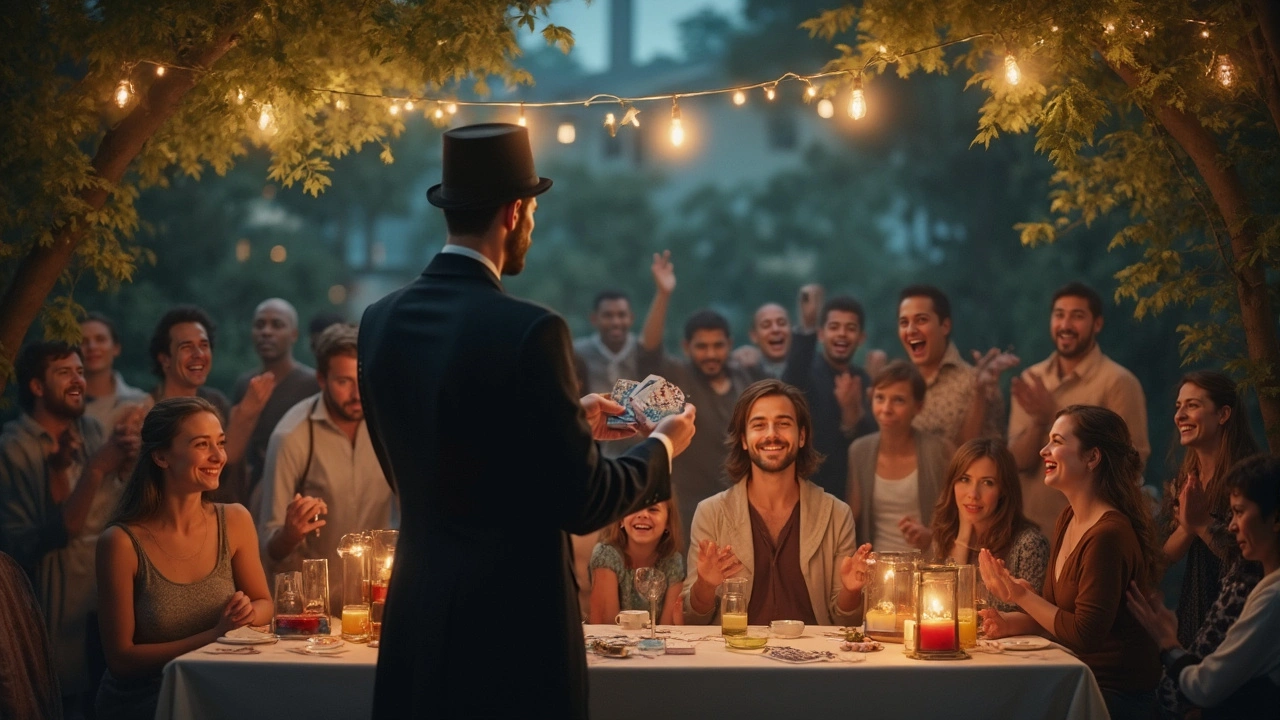Unlock Magic: Tricks, Skills, and Everyday Secrets
Ever wondered why a simple card trick gets crowds cheering or how pulling off a “mind reading” stunt can be so persuasive? Magic isn’t just flashy stage acts—it’s a mix of clever psychology, sharp observation, and a pinch of creativity that anyone can learn. Whether you want to impress friends at a party or level up your problem-solving game, magic has something for you.
Magic tricks come in all shapes. From easy coin vanishes to classic card tricks or baffling mind-reading illusions, the basics always rest on three things: misdirection, storytelling, and practice. For beginners, tricks like the disappearing coin or the classic “pick a card” routine pack a punch while needing minimal setup. You might think it’s all about moving fast, but often it’s about making your audience look in the wrong place at the right time.
Mentalism and mind reading seem mysterious, but most pros rely on reading subtle cues, spotting patterns in behavior, and good old showmanship. For example, mentalists often use questions with clues built in, watching your body language or facial reaction to nail their ‘predictions.’ These skills aren’t just for the stage—they help spot lies, win arguments, or break the ice at events.
If you love the “how did they do that?” moments, take a closer look at the science behind magic. Magicians use principles straight out of psychology—like misdirecting your attention or twisting your memory. That’s why you don’t notice a sleight of hand right in front of your nose, or you remember an act a little differently than it happened. Want proof? Try the old “count the passes” trick, asking friends to count passes of a ball in a video while a gorilla walks by. Most miss the gorilla. That’s misdirection, pure and simple.
Magic can be more than fun—it’s a practical tool for building confidence, thinking creatively, and connecting with people. Magicians often report that learning tricks improved their memory and made them better public speakers. It teaches you to step out of your comfort zone and see problems from new angles. Some schools and therapists use magic to help kids understand focus, sequences, or social skills. Even just mastering a quick card trick gives a real confidence boost.
Learning magic isn’t all about dusty books or secret handshakes, either. These days, you’ll find online workshops, YouTube channels, and even “magic schools” offering step-by-step breakdowns for all ages. Many start with a simple kit and build up as their skills grow. The main thing: practice, patience, and being willing to mess up in front of friends while you learn.
Ready to start? Just grab a deck of cards or a coin and try a beginner move. Soon enough, you’ll find it’s less about fooling people and more about connecting and having fun. And if you ever get stuck, remember—even the best magicians started with a basic trick or two and plenty of practice in front of a patient buddy or mirror.

Magic Tricks: Engage Your Audience with Fun and Interactive Experiences
- by Zephyr Blackwood
- on 12 Feb 2025
Magic tricks can be a powerful way to engage any audience, adding a layer of wonder and excitement to various events. From simple sleights of hand to more complex illusions, these tricks capture attention and spark curiosity. This article explores how to incorporate magic in social settings, offering practical tips and fascinating insights into the world of magic. Discover how even novice magicians can create impactful experiences that leave a lasting impression.
